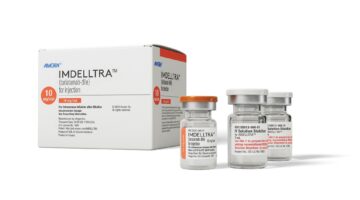Highlights of the important and the interesting from the world of healthcare:
Democrats again take aim at insurance premium hikes: Legislation that would give federal regulators the power to veto insurance premium rate hikes is back on the table. The idea was floated back in February and embraced by President Obama when he was heating up the anti-insurer rhetoric, but it never found its way into the health reform law. But now congressional Democrats are pushing it again, figuring the public’s dislike of insurers may be enough to help push it through this time. Currently, the power to regulate premium increases lies with the states, but the powers vary broadly by state, so perhaps across-the-board federal regulation would help to even out disparities, the thinking goes. The new proposal would give the feds the right to step in only in states with weak regulation powers, the L.A. Times reports.
Insurance companies argue that rising premiums are a symptom rather than a cause of escalating health costs–and to a large extent they’re correct. Hospitals with local monopolies, the medical technology “arms race,” doctors who insist on high-tech but unproven treatments, expensive brand name drugs and an aging population’s unhealthy lifestyle are significant cost drivers. Still, with insurance companies being most consumers’ point of contact when it comes to paying medical bills, they’ll always be a popular target–for better or worse. The looming regulation illustrates the “two worlds” that insurers now live in: They exist to make profits, but the more profits they report, the likelier they are to become targets for Congressional and public angst, whether justified or not.

BioLabs Pegasus Park Cultivates Life Science Ecosystem
Gabby Everett, the site director for BioLabs Pegasus Park, offered a tour of the space and shared some examples of why early-stage life science companies should choose North Texas.
Technologies poised to change the world: MIT has released its annual list of 10 emerging technologies that it predicts will soon have a “profound impact on the way we work and live.” The healthcare industry placed two items in the unordered list. One is California biotech firm Genentech‘s “dual-action antibodies,” technology that gives patients two drugs for the price of one and could offer AIDS and cancer treatments that work better and cost less than existing drugs.
Also on the list is Madison, Wisconsin’s Cellular Dynamics, whose stem cell technology has the potential to “revolutionize” the way drugs are screened and diseases are studied, according to MIT. The company specializes in pluripotent stem cells, which can differentiate into any cell type and be used in drug development. Cellular Dynamics takes cells from a patient’s own blood or other tissue and chemically reverses them back to a pluripotent state. Human heart cells, which the company branded iCell Cardiomyocytes, are the first are the first application of the technology that Cellular Dynamics has commercialized. The company designed the cardiac cells primarily to aid drug discovery and to help predict the efficacy and toxicity of different drugs.
NFL gives $1 million for concussion study: In celebration of the wonderful spectacle that is the NFL draft (or “sports without the sports” as some might say) and it’s kick-off this evening, we bring you this health-related news brief from the league. Concerned about the prevalence of concussions, the league is donating $1 million to Boston University School of Medicine to study brain injuries. The funding will support research into the long-term effects of repetitive brain trauma in athletes, particularly football players, the AP reports. Widespread concussions and fears about their long-term effects were one of the dominant story lines of last season, with most teams bowing to pressure to hold players who’ve suffered head trauma out of games that they’d surely have played in years past. Expect the concussion discussion to come up again tonight, particularly in the case of talented Chris Johnson-like running back Jahvid Best from Cal. The shifty but undersized back’s two concussions last year will likely end up costing him millions of dollars on his first contract as he falls in the draft.
Photo from flickr user au_tiger01

A Deep-dive Into Specialty Pharma
A specialty drug is a class of prescription medications used to treat complex, chronic or rare medical conditions. Although this classification was originally intended to define the treatment of rare, also termed “orphan” diseases, affecting fewer than 200,000 people in the US, more recently, specialty drugs have emerged as the cornerstone of treatment for chronic and complex diseases such as cancer, autoimmune conditions, diabetes, hepatitis C, and HIV/AIDS.












